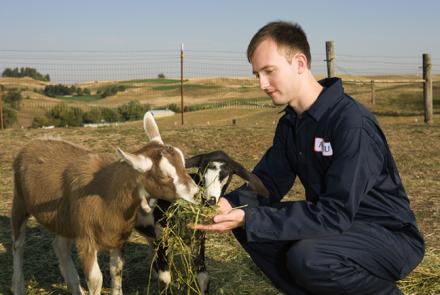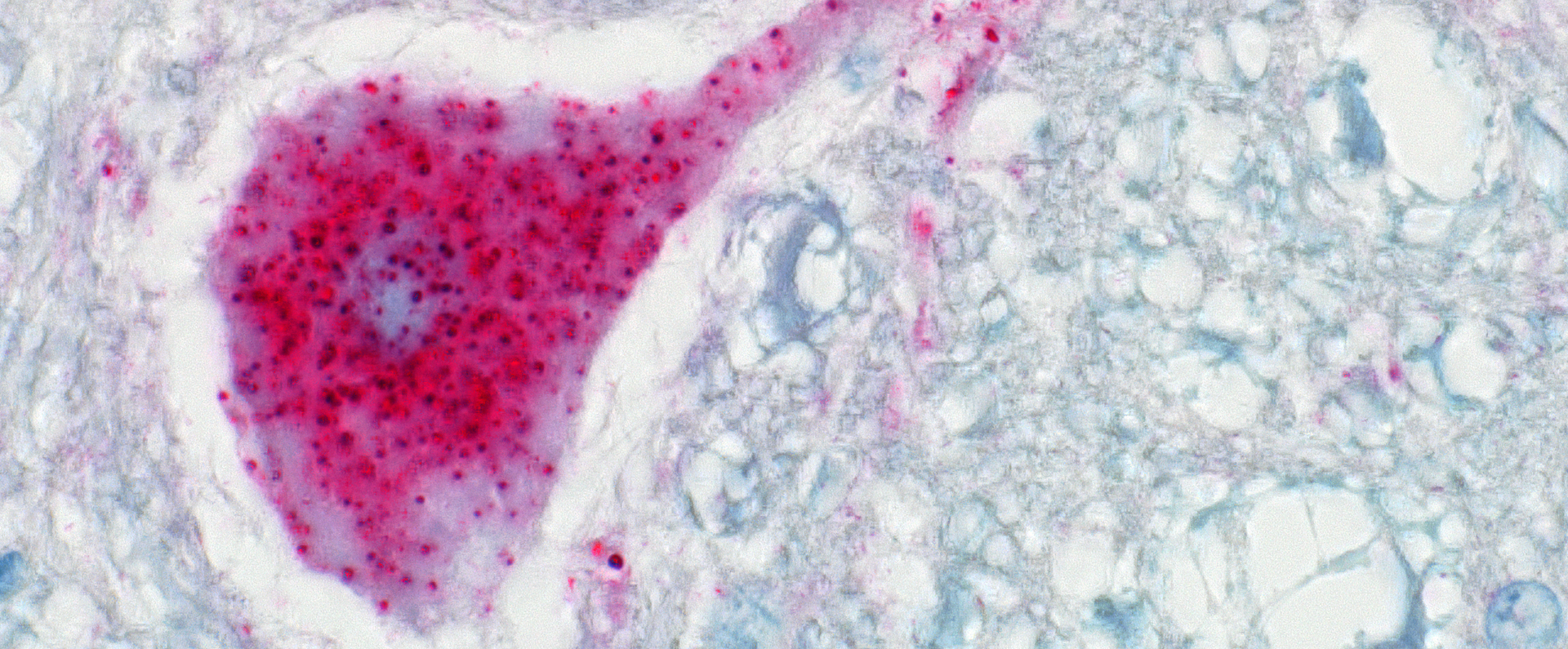Protecting Animal Health and Consumers From Disease

Public health concerns over the first U.S.-confirmed case of bovine spongiform encephalopathy (BSE) in Washington State in 2003 prompted trade restrictions that cost the Nation's cattle and associated industries an estimated $11 billion in losses from 2004 to 2007.
BSE is a progressive neurological disease that damages the brains and spinal cords of afflicted cattle, causing poor coordination, erratic behavior, and other symptoms. Abnormally structured proteins called “prions” cause BSE and related disease in sheep and goats, known as “scrapie” (at $20 million annually in losses), chronic wasting disease (CWD) in deer and elk, and, in humans, Variant Creutzfeldt-Jakob disease (vCJD).
Two ARS locations—one in Ames, IA, the other in Pullman, WA—have been on the forefront of studies to diagnose prion diseases and distinguish between them in vulnerable livestock. Together with their Federal, State, and international partners, ARS researchers at the two locations have also developed preventive measures and tools that producers can use to safeguard their herds and flocks.
This includes strategies for breeding scrapie resistance in sheep and goats—an approach adapted in the United States, Canada, and parts of Europe to eradicate the disease. In the United States, this program has reduced incidents of scrapie in sheep and goats by 90 percent annually since 2003.
In another example, ARS-led research showed that cattle do not acquire “atypical” forms of BSE from eating prion-contaminated feed, unlike “classical” BSE, which has been linked to vCJD. Rather, atypical BSE is thought to occur spontaneously due to a rare genetic mutation, similarly to vCJD in humans.
In 2012, 2017, and 2018, U.S. cattle producers dodged another costly round of trade restrictions after test results showed that the new cases of BSE reported in cows were atypical rather than classical.
Related Information



